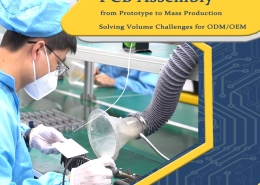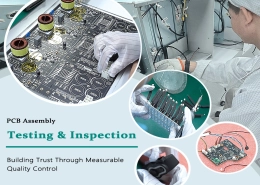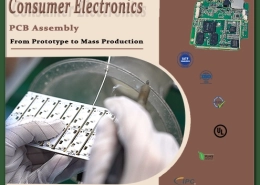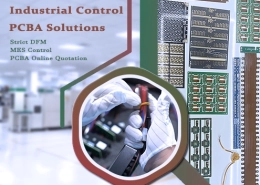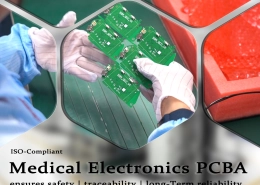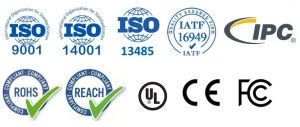Automotive PCB Assembly for High-Performance Vehicles
In today’s rapidly evolving automotive industry, automotive PCB assembly plays a critical role in enabling safety, efficiency, and innovation. From electric vehicles to advanced driver assistance systems (ADAS), the printed circuit board assembly process must meet rigorous standards for performance, durability, and cost control. Manufacturers who combine turnkey PCB assembly service capabilities with advanced engineering expertise can deliver reliable solutions while maintaining competitive pricing.
Why Automotive PCB Assembly Requires Precision and Reliability
Unlike consumer electronics, automotive PCBs are subjected to extreme temperature changes, vibration, and moisture. These conditions demand robust electronic board assembly processes and specialized materials. A well-optimized PCBA manufacturing process ensures that each board meets functional requirements and withstands years of continuous operation without failure.
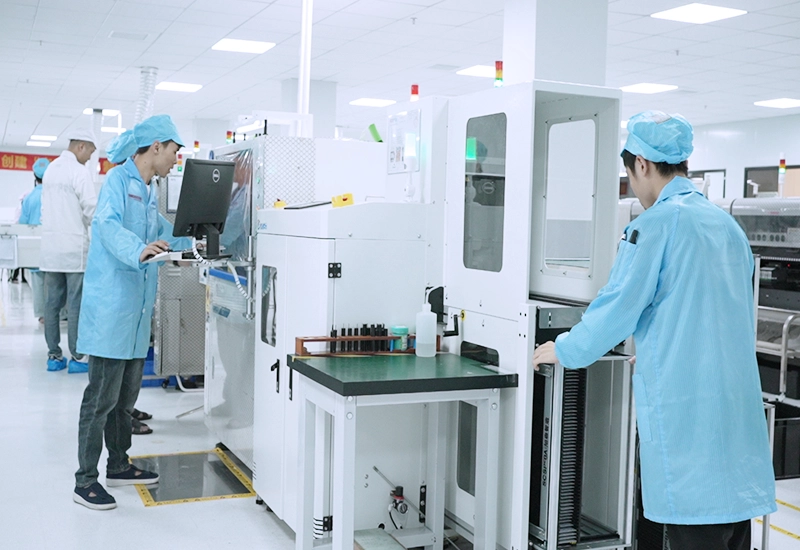
From Design to Production – The Complete PCBA Manufacturing Process
The circuit board manufacturing process in industry for automotive applications is far more rigorous than in many other sectors, as it must meet strict quality, safety, and environmental standards. A complete PCBA manufacturing process typically includes the following stages:
-
Design for Manufacturing (DFM) and Design for Testability (DFT)
-
Before a single board is fabricated, the circuit design undergoes DFM analysis to ensure optimal component placement, minimal signal interference, and compliance with high-speed data requirements such as CAN, LIN, or automotive Ethernet.
- DFT considerations are incorporated to allow easy integration of test points and diagnostic tools during production and maintenance, which is essential for automotive reliability.
-
-
PCB Board Material Selection and Stack-Up Planning
-
Depending on the application, engineers may select high-Tg FR4 for standard automotive electronics or ceramic substrates for high-power modules like EV inverters.
-
Stack-up design is carefully planned to balance signal integrity, impedance control, and heat dissipation. This step is especially critical in advanced assembly projects involving multi-layer circuit board designs.
-
-
PCB Prototyping Services
-
Small-batch circuit board prototypes are manufactured for functional validation, thermal simulation, and vibration testing.
-
Any design flaws identified at this stage are corrected before full-scale production, reducing costly rework later.
-
-
Surface Mount PCB Assembly (SMT)
-
Using high-speed pick-and-place machines, components are mounted with precision to ensure correct alignment and solder joint quality.
-
For surface mount pcb assembly, automated optical inspection (AOI) is performed at multiple points to detect solder defects early.
-
-
Through-Hole Technology (THT) and Mixed Technology Assembly
-
Certain automotive components, such as connectors and high-current terminals, require through-hole soldering for mechanical strength.
-
A combination of surface mounting technology and THT is often used to achieve both compactness and robustness.
-
-
Quality Testing and Reliability Assurance
-
Multiple testing methods are applied, including:
-
In-Circuit Testing (ICT) for electrical continuity and short detection
-
Functional Testing under simulated operating conditions
-
Thermal Cycling and Humidity Testing to simulate extreme environments
-
Vibration and Shock Testing to ensure structural integrity for in-vehicle use
-
-
-
Final Assembly and Box Build
-
Completed PCB board are integrated into protective enclosures, heat sinks, or module housings, ready for installation in the vehicle.
-
This stage often forms part of a full turnkey assembly model, where the printed circuit board manufacturers delivers a fully functional module rather than just bare circuit PCBs.
-
-
Packaging and Logistics
-
Finished boards are packaged to ESD standards, with complete quality reports, compliance certificates (such as IATF 16949), and traceability records.
-
Efficient logistics planning ensures timely delivery to automotive OEMs or Tier 1 suppliers.
-
By integrating these stages under a full turnkey PCB assembly service, automotive PCB suppliers can not only reduce production time and minimize defects, but also ensure that every board meets the strictest automotive industry standards, from performance to safety compliance.
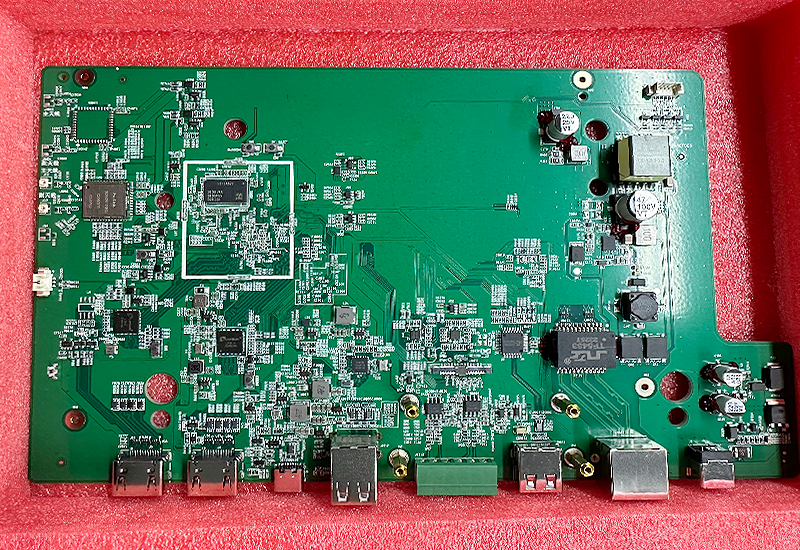
Cost Efficiency Through Turnkey PCB Assembly Services
For automotive OEMs and Tier 1 suppliers, controlling manufacturing costs is just as critical as ensuring long-term reliability and compliance with strict industry standards. Partnering with experienced PCBA suppliers who provide a full turnkey PCB assembly solution allows every stage — from design optimization and component sourcing to assembly, testing, and final delivery — to be managed under a single, integrated workflow. This eliminates the inefficiencies of coordinating multiple vendors, reduces lead times, and improves overall quality consistency.
For example, SCSPCBA’s engineering team conducts a detailed BOM quote analysis during the early design phase, evaluating each component for performance, cost, and availability. If a high-priced imported IC can be replaced with a certified domestic alternative that meets the same automotive-grade requirements, we make the switch without compromising reliability. In one recent automotive PCB assembly project for an EV control unit, we identified substitutions in over 15% of the BOM components, reducing procurement costs by 18% and cutting lead times by nearly two weeks.
Beyond component optimization, our turnkey PCB assembly service consolidates sourcing, manufacturing, and testing in-house. This not only minimizes logistical expenses but also strengthens supply chain stability — a critical factor in the automotive sector, where delays can halt entire production lines. By managing the PCBA manufacturing process from start to finish, we ensure that cost savings never come at the expense of quality or compliance.
Advanced Assembly PCB Solutions for Automotive Applications
The rapid adoption of electric mobility, autonomous driving, and connected vehicle technologies is pushing the boundaries of advanced assembly PCB design. Automotive systems such as EV battery management systems, radar-based collision avoidance modules, and high-resolution infotainment displays require precision manufacturing to deliver consistent performance in harsh operating conditions.
These projects often involve:
-
High-Density Interconnect (HDI) PCB board – Enabling compact, lightweight layouts with shorter signal paths for high-speed communication.
-
Advanced Thermal Management – Incorporating metal-core PCBs or thermal vias to dissipate heat from high-power components, critical for power electronics in EVs.
-
Multi-Layer PCB – Integrating control, power, and signal layers within tight space constraints while maintaining electromagnetic compatibility.
-
Automotive-Grade Reliability Testing – Performing vibration, shock, and thermal cycle tests to ensure long-term durability under extreme conditions.
By partnering with a manufacturer that excels in surface mount PCB assembly services and precision pcb surface mount assembly, automotive developers can turn complex concepts into production-ready boards. SCSPCBA’s in-house industrial PCB manufacturing process ensures every layer of the PCB is built to meet ISO and IATF automotive certifications, while optimizing for both performance and scalability.
Partnering With SCSPCBA for Automotive PCB Assembly
As a trusted ceramic PCB manufacturer and PCBA supplier, SCSPCBA delivers turnkey PCB assembly services tailored specifically to the automotive industry.
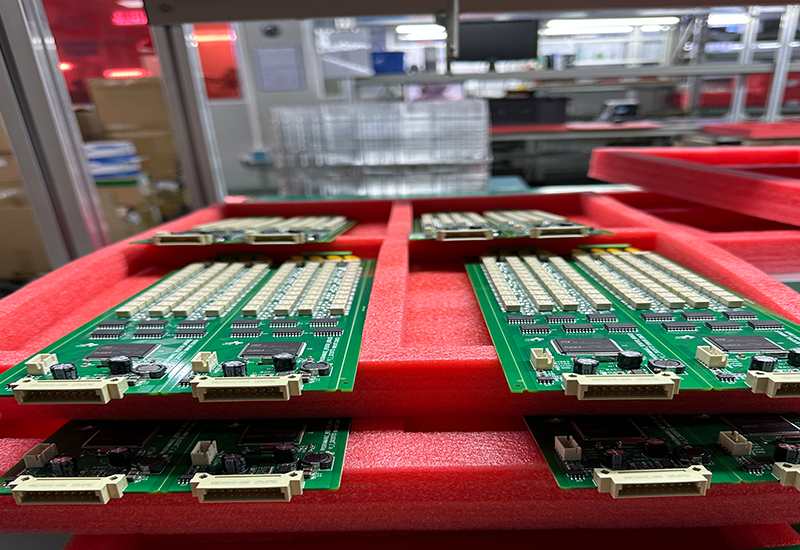
Our capabilities extend across the full product lifecycle:
-
PCB Design Optimization – Engineering layouts that improve manufacturability, reduce potential failure points, and support high-speed automotive communication protocols.
-
Component Sourcing with Cost-Effective Alternatives – Leveraging our global network of qualified suppliers to secure certified automotive-grade parts at competitive prices, with contingency sourcing strategies to avoid supply chain disruptions.
-
SMT and PCB Surface Mount Assembly – High-speed pick-and-place lines for volume production, combined with automated optical inspection (AOI) and X-ray verification to ensure zero-defect assembly.
-
Comprehensive Automotive-Grade Testing – In-circuit testing, functional testing, thermal cycling, and vibration testing to validate compliance with IATF 16949 and IPC-A-610 Class 3 standards.
Whether you are developing EV control systems, ADAS modules, or next-generation infotainment platforms, our industrial PCB manufacturing process guarantees that each board not only meets performance and safety requirements but is also optimized for cost efficiency and production scalability.

